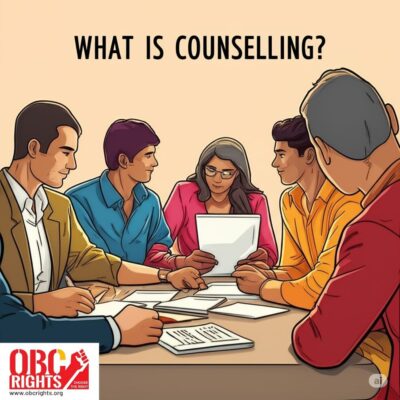College counselling is a critical stage in the higher education admission process. For many students, it is the final step after months or years of exam preparation. However, despite qualifying for competitive exams like JEE, NEET, CLAT, or TNEA, several candidates miss out on good opportunities due to avoidable errors during the counselling process.
This blog highlights the most common mistakes students make during college counselling and offers practical guidance on how to avoid them.
Missing Important Deadlines
Each stage of the college counselling process—registration, document verification, choice filling, and seat acceptance—comes with strict deadlines. Missing any of these can result in disqualification or loss of a seat.
What to do:
Stay updated through official counselling portals. Set reminders for key dates and avoid waiting until the last moment to complete tasks.
Inadequate Research on Colleges and Courses
Some students choose colleges or courses based solely on name recognition or peer suggestions, without considering important factors such as faculty, facilities, placement records, or location.
What to do:
Do your research. Understand which institutions align with your academic goals, financial capacity, and career aspirations.
Incomplete or Incorrect Choice Filling
Filling only a few top choices and ignoring realistic or backup options is a common error. This also includes entering choices without proper explanation and prioritization.
What to do:
List a mix of dream, practical, and safe options. Fill in as many choices as allowed and rank them carefully in your true order of preference.
Ignoring Reservation Benefits: Must use the Reservation / Quota benefits:
Students eligible under reserved categories (such as OBC, SC/ST, EWS, or PwD) sometimes fail to submit valid documents or apply under the correct category.
What to do:
Check your eligibility and make sure all certificates are current, correct, and uploaded in the proper format during counselling.
Uploading Low-Quality or Incorrect Documents
Uploading unclear, expired, or mismatched documents can delay verification or lead to disqualification.
What to do:
Scan and upload documents in high resolution. Cross-check all names, dates, and details. Keep originals and photocopies ready for physical verification if required.
Overestimating Rank and Ignoring Cutoff Trends
Some candidates apply only to top-tier institutions without assessing whether their rank qualifies them.
What to do:
Refer to past cutoff trends for different institutions and categories. Be realistic and strategic in your college selection.
Forgetting to Lock Choices
Students often fill in their preferences but forget to click on the “Lock Choices” button, rendering their submission incomplete.
What to do:
Always lock your choices before the deadline and save the confirmation slip as proof.
Skipping Further Rounds
Many candidates drop out after Round 1 if they don’t get their preferred seat, even though better options may open up later.
What to do:
Participate in all eligible rounds, including mop-up and special rounds. You may receive a better seat in later phases.
Relying Solely on External Opinions
While guidance from parents, teachers, and friends can be valuable, blindly following others’ choices may not serve your personal goals.
What to do:
Take advice, but base your final decision on your interests, research, and career plans.
Not Preparing for the Next Step
Some students focus entirely on counselling and ignore important post-allotment preparations such as fee payment, relocation, and understanding the course structure.
What to do:
After seat allotment, promptly complete admission formalities and begin preparing for academic and campus life.
Conclusion
College counselling is not just a process — it is a decision-making journey that can define your academic future. Being informed, organized, and realistic can help you avoid common pitfalls and make choices that are best suited to your goals.
Stay updated, ask questions when in doubt, and plan carefully — because the right decision during counselling can open the door to a brighter future.



